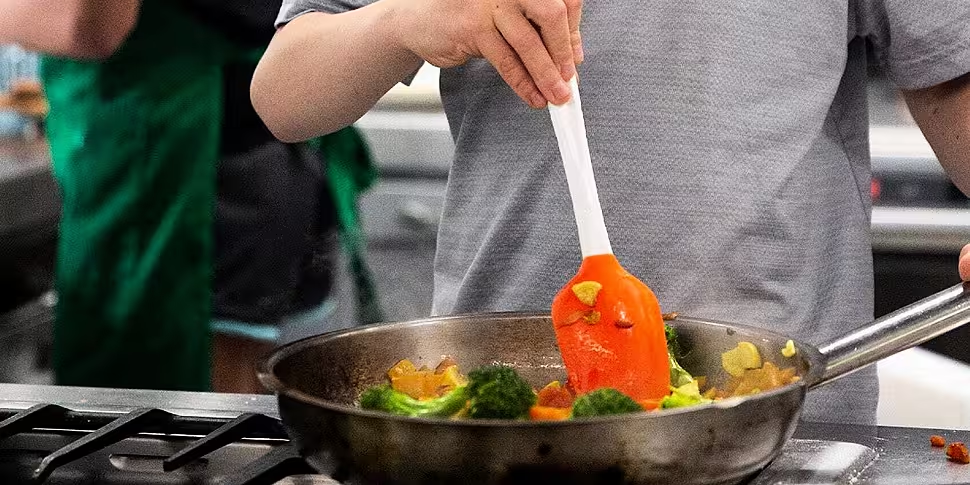Home economics should "without a doubt" be a compulsory subject in Irish schools, Irish chef Gary O'Hanlon says.
He suggests he would "go as far as saying it’s more important than teaching Irish".
He was speaking during a discussion on Lunchtime Live about whether the subject should be compulsory for all secondary school students during the junior cycle.
A number of such calls have been made over the years - including an Oireachtas committee report in 2018 that suggested it could be used as a way of tackling childhood obesity.
Gary said he's a strong supporter of making it one of the 'core' subjects for students.
He said: "I’d go as far as saying there should be some elements of it in primary school - practical work with food, or anything even linked with home economics in the wider sense.
“I’m a big fan of the Irish language, but I would go as far as saying it’s more important than teaching Irish.
“The amount of people you come across who don’t even have a basic dinner in their locker! Home economics is about a lot more than food as well - it’s life skills. I cannot stress enough how important it for life in general, and being able to fend for yourself.”
Home economics has often been offered primarily in all-girls schools, with CSO stats from 2019 showing nearly ten times as many girls as boys sitting the subject at the Leaving Cert.
However, Gary doesn't believe it's a subject that should be divided by gender.
He noted that he himself has noticed a significant increase in the number of men taking his own cooking classes in recent years.
"Creative and practical" skills
Helen Maguire, head of the School of Home Economics at St Angelas College in Sligo, also believes the question of making home economics compulsory shouldn't be seen as a gender issue.
She said everyone needs to eat healthily and exercise well, and home economics can help teach students how to achieve that.
She observed: “We feel there’s an absolute need for the subject… it really has direct relevance to the present and future life of every young person.
“It really introduces them to the social, economic and technological aspects of everyday life - both at a creative and practical level.”
She stressed it teaches not just cooking skills, but also other practical skills in areas such as sewing, resource management and decision making.
She also noted that countries such as Korea, Iceland, Japan and Finland have already made home economics compulsory, as they see it as a way to improve the health and wellbeing of students.
Currently, the subject remains optional in Irish secondary schools.
While some schools may offer first-year students a chance to 'trial' it and other subjects before making a decision over whether to stick with it, others may not even get that chance at all before having to make their decision.









